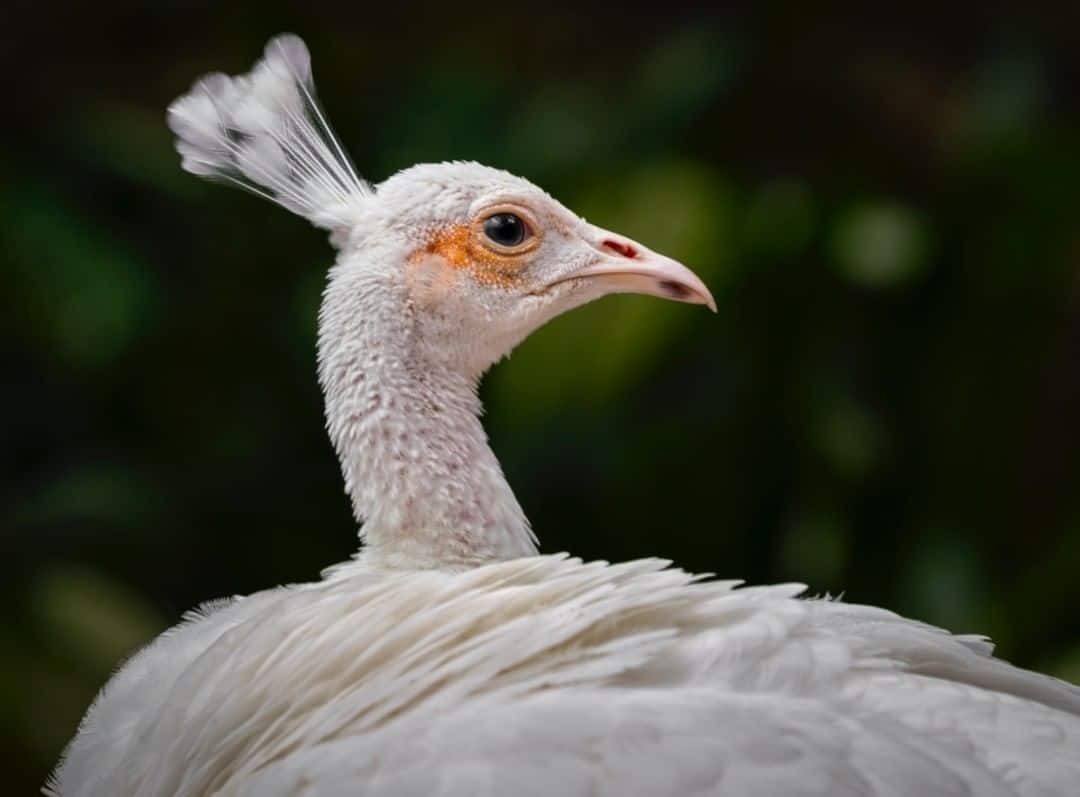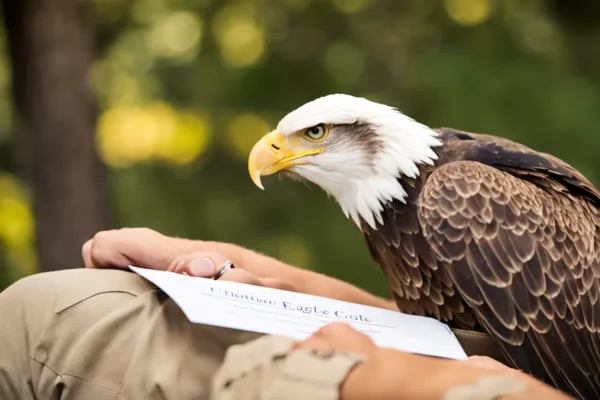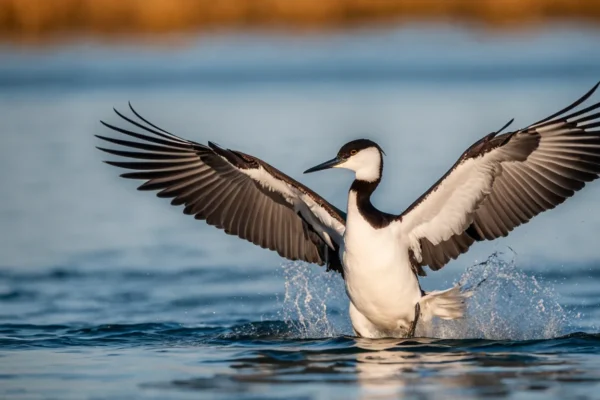You could observe the birds in your garden making their way to their nighttime nests as day gives way to twilight. But have you ever pondered why, exactly, they cease to fly when the sun sets? You have come to the correct site if you are interested in finding out the causes of this typical bird behaviour.
The main reason birds cannot fly at night is because their eyesight is not adjusted to the dark. Additionally, they often sleep at night to save energy. Nocturnal flights are additionally restricted by reduced temperatures, a scarcity of prey, and the possibility of predators.
Birds’ Night Vision Is Poor
The fact that birds can’t see well in the dark is one of the primary reasons they don’t fly at night. Birds can see well in strong light because their eyes are suited for daylight vision.
Their eyes are designed to watch rapidly moving things, identify colours, and locate prey from a distance. Nevertheless, their eyesight is severely impaired under low light levels.
Eyes designed to see in the daylight
Cones are photoreceptor cells that are highly concentrated in the eyes of birds; they are responsible for colour vision and fine detail perception. Because there are so many cones, birds can see complex patterns on flowers and other objects, as well as a broad spectrum of colours.
Birds also have a unique structure in their eyes called the fovea, which is a region with a high density of cones that gives them remarkable visual acuity.
However, decreased sensitivity to low light is the price paid for this extraordinary visual acuity. Birds’ eyes have fewer rods than humans’ and some other animals’, which are photoreceptor cells that allow them to see at night.
This implies that birds’ vision is impaired in low light, which makes it difficult for them to find their way and navigate at night.
Flight is risky due to limited night vision.
For birds, flying at night may be quite perilous because of their poor night vision. A lack of sight makes it more likely that you may crash into things like trees, buildings, or even other birds. Nighttime also makes it more difficult for birds to find food sources and stay away from predators.
Birds have thus evolved to be more active during the day, when vision is at its best and they have a better chance of surviving.
Most birds prefer to relax and store energy during the night, but certain species, like nightjars and owls, have evolved to be nocturnal and have improved night vision.
They are able to regain their energy and get ready for the next day’s activities thanks to this.
Visit All About Birds, a website devoted to bird study and education, for further details on bird eyesight and adaptations.
Flights at Night Waste Vital Energy
Ever wonder why birds avoid the night sky? It turns out that this behaviour is caused by many factors. The fact that night flights squander birds’ limited energy is one of the primary causes.
Birds sleep at night to preserve energy.
Like us, birds too need beauty sleep! Birds that sleep at night are able to save energy for their daytime activity. Birds may replenish their energy reserves and be prepared for a demanding day of flying, hunting, and foraging by sleeping and recuperating throughout the night.
According to studies, birds’ daytime metabolic rates are greater than their nighttime ones. This indicates that individuals need more energy to continue their daily tasks throughout the day. Birds are able to save energy and make sure they have adequate fuel for daytime flights by refraining from flying at night.
Wing-flapping takes a lot of energy.
The fact that flapping flight uses a lot of energy is another reason birds don’t fly at night. The constant beating of the wings during flapping flight uses a lot of muscular energy and oxygen.
Birds need to fly this way in order to move through the air and keep their location in the sky.
The absence of light throughout the night makes it harder for birds to navigate and find their route. Due to the possibility of having to alter their flight route more often, birds may need to use more energy while they are flying.
Birds prefer to remain grounded at night in order to save energy, minimise the chance of being disoriented, and avoid colliding with obstructions.
The next time you wonder why birds don’t fly at night, keep in mind that it’s all about energy conservation and making sure they survive in a world that may be difficult, even for our feathered friends!
Nighttime Flying is Limited by Other Factors
Although birds have evolved to fly during the day, there are a number of obstacles that prevent them from flying at night. Reduced temperatures, an absence of insect prey, and the existence of nocturnal predators are some of these variables.
Long flights are difficult at lower temperatures.
The colder temperatures throughout the night make it more difficult for birds to maintain extended flights, which is one reason why they don’t fly at night. Since birds have warm blood, their body temperature must be kept within a certain range in order for them to perform at their best.
Temperatures tend to decrease at night, which makes it more difficult for birds to produce enough heat to be active and continue flying.
Colder nighttime temperatures may also have an impact on air density, which makes it harder for birds to get lift and remain in the air. Because they need more lift to remain in the air, bigger birds with greater wing-loading are more affected by this.
Insect prey scarcity eliminates motivation to fly at night.
The scarcity of insect food restricts birds’ ability to fly at night. Insects are the primary food supply for many bird species, and they are most active during the day. There is a noticeable drop in insect activity as dusk approaches.
Birds have little reason to fly at night if there is a lack of insects to eat. Birds must balance their energy intake and expenditure with their food intake in order to fly. Birds will save their energy and stay roosted if there are few or no insects around at night.
Night flights are more risky due to nocturnal predators.
Birds flying at night are also at danger from nocturnal predators. Numerous predators, like owls and bats, have developed unique adaptations that enable them to hunt in low light, making them very proficient night hunters.
However, because of their worse night vision, birds have a harder time finding their way around and seeing potential predators.
Birds are more prone to seek cover and avoid flying at night due to the greater danger of predation. This is a survival tactic that improves their chances of surviving by reducing their exposure to possible predators.
Final Thoughts
You’ll realize why birds choose not to soar after dusk the next time you see them settling in to roost as the sun sets. Given their limited ability to fly safely at night and the fewer advantages and increased hazards of doing so, it is best for our feathery companions to remain on the ground as night falls.
However, they will resume their activities at first light, prepared to make the most of the daylight hours!


![34 Beautiful Black Birds With White Stripes On Wings [images + IDs]](https://birdsology.com/wp-content/uploads/2022/09/23-600x400.jpg)



